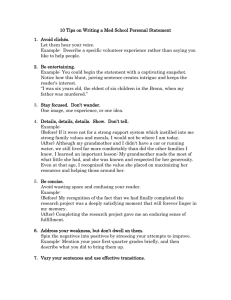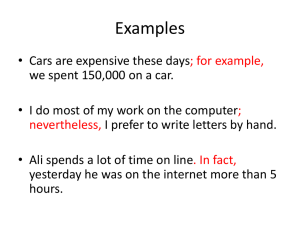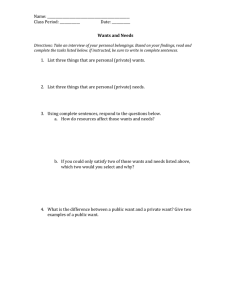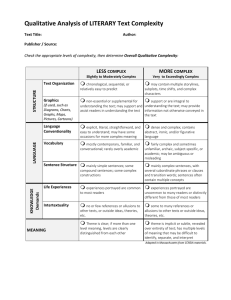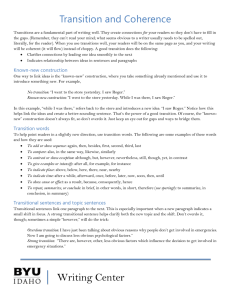10 Tips - Personal Statement
advertisement
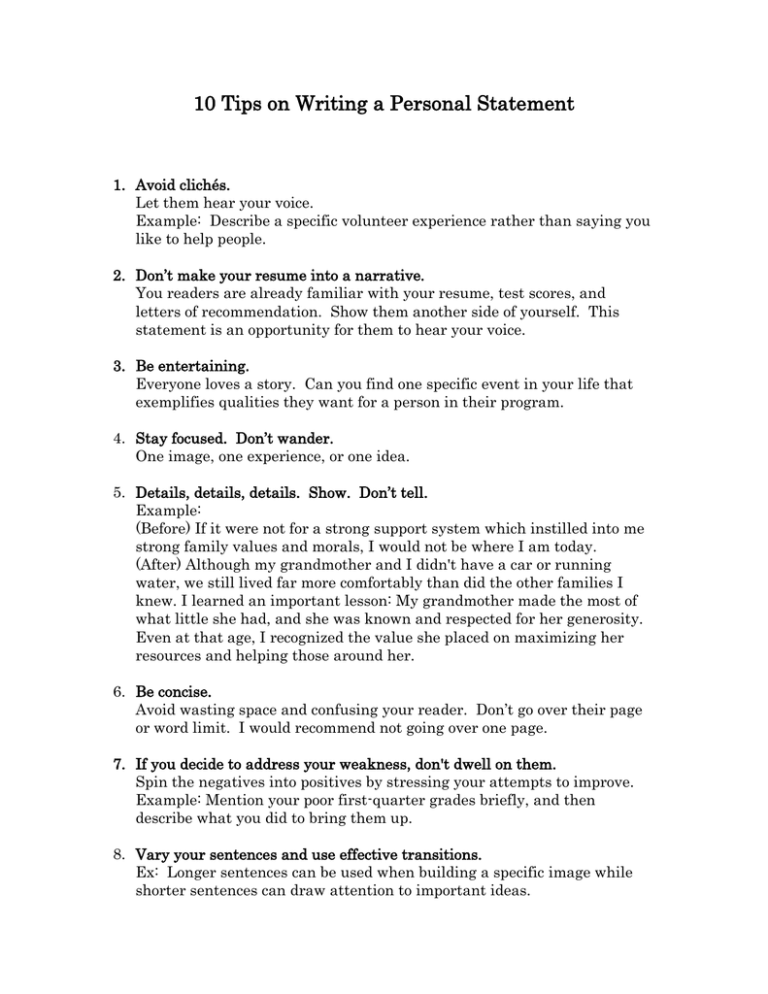
10 Tips on Writing a Personal Statement 1. Avoid clichés. Let them hear your voice. Example: Describe a specific volunteer experience rather than saying you like to help people. 2. Don’t make your resume into a narrative. You readers are already familiar with your resume, test scores, and letters of recommendation. Show them another side of yourself. This statement is an opportunity for them to hear your voice. 3. Be entertaining. Everyone loves a story. Can you find one specific event in your life that exemplifies qualities they want for a person in their program. 4. Stay focused. Don’t wander. One image, one experience, or one idea. 5. Details, details, details. Show. Don’t tell. Example: (Before) If it were not for a strong support system which instilled into me strong family values and morals, I would not be where I am today. (After) Although my grandmother and I didn't have a car or running water, we still lived far more comfortably than did the other families I knew. I learned an important lesson: My grandmother made the most of what little she had, and she was known and respected for her generosity. Even at that age, I recognized the value she placed on maximizing her resources and helping those around her. 6. Be concise. Avoid wasting space and confusing your reader. Don’t go over their page or word limit. I would recommend not going over one page. 7. If you decide to address your weakness, don't dwell on them. Spin the negatives into positives by stressing your attempts to improve. Example: Mention your poor first-quarter grades briefly, and then describe what you did to bring them up. 8. Vary your sentences and use effective transitions. Ex: Longer sentences can be used when building a specific image while shorter sentences can draw attention to important ideas. 9. Seek multiple opinions. Find trusted, knowledgeable readers. Avoid overwhelming yourself with too many opinions. Address “global issues” first (focus, topic, organization, idea development…). After those issue have been addressed, move on to “lower-level issues (concise sentences, avoiding passive voice, transitions, grammar/mechanics…) 10. Revise. Give yourself plenty of time to revise but know when to stop. Your readers want someone who can communicate clearly and write well. Be sure your statement is error free. Kerri Bright Flinchbaugh flinchbaughk@ecu.edu Health Scineces 1504 Tuesdays and Thursdays, 9:15-1:00 This is a drop in service, so come on by!
